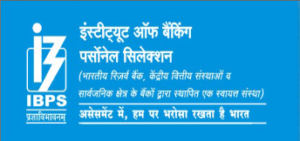Table of Contents
Introduction
Textile engineering is a specialized field that involves the application of scientific principles and engineering concepts to the design, production, and manufacturing of textiles and fabrics. Textile engineers play a crucial role in developing innovative materials, enhancing manufacturing processes, and ensuring the quality and functionality of various textile products. This article will provide a comprehensive guide on how to become a textile engineer in India.
What is Textile Engineering?
Textile engineering encompasses a wide range of activities related to the production and utilization of fibers, yarns, fabrics, and other textile materials. Textile engineers are involved in designing, developing, and testing various textiles used in clothing, home furnishings, technical textiles, and industrial applications. They work with cutting-edge technologies to create sustainable and eco-friendly textiles that meet the needs of modern society.
Educational Requirements
Academic Qualifications
To become a textile engineer, you need to have a strong educational foundation. The first step is to complete your higher secondary education with a focus on science subjects such as Physics, Chemistry, and Mathematics. After completing high school, aspiring textile engineers usually pursue a Bachelor’s degree in Textile Engineering or related fields like Textile Technology or Textile Chemistry.
Specialized Courses
In addition to a Bachelor’s degree, individuals looking to excel in this field can opt for specialized courses and certifications. These courses cover topics such as textile design, dyeing and printing, textile machinery, quality control, and apparel manufacturing. Undertaking these courses will enhance your knowledge and expertise, making you more desirable to potential employers.
Gaining Practical Experience
Internships and Industrial Training
Practical experience is crucial for a successful career in textile engineering. During your academic journey, try to secure internships and industrial training opportunities with reputable textile companies or research institutions. These hands-on experiences will provide valuable insights into real-world textile processes and challenges.
Industry Collaborations
Collaborating with textile industries and research centers during your academic projects can also offer practical exposure. It allows you to work on industry-specific problems and develop innovative solutions, showcasing your abilities to future employers.
Skills and Competencies
Technical Skills
Textile engineering demands proficiency in various technical skills, including material testing, textile machinery operation, CAD (Computer-Aided Design) software, and knowledge of different textile manufacturing processes. Staying updated with the latest advancements in textile technology is essential to remain competitive in the industry.
Soft Skills
Apart from technical skills, possessing soft skills is equally important for a textile engineer. Effective communication, teamwork, problem-solving, and creativity are essential attributes that will help you succeed in this dynamic and collaborative field.
Job Opportunities
As a textile engineer, you can explore various job opportunities in different sectors:
Textile Manufacturing Companies
Textile manufacturing companies hire textile engineers to oversee production processes, quality control, and product development. You can work in departments such as research and development, production management, or technical services.
Research and Development Organizations
Research institutions and organizations employ textile engineers to conduct research on new materials, sustainable practices, and product innovations. This role allows you to contribute to the advancement of the textile industry.
Government Sector
The government sector also offers opportunities for textile engineers in areas like quality assurance, standardization, and policy formulation related to the textile industry.
Career Growth and Progression
Textile engineering provides ample opportunities for career growth and progression. With experience and expertise, you can move up the ranks from junior positions to managerial roles. You may also choose to specialize in specific areas like technical textiles, fashion technology, or sustainable textiles.
Industry Trends and Innovations
The textile industry is ever-evolving, with constant advancements and innovations. As a textile engineer, staying updated with the latest industry trends, eco-friendly practices, and technological advancements is vital for professional growth and contributing to sustainable textile solutions.
Challenges Faced by Textile Engineers
Textile engineers encounter various challenges, including environmental concerns, sustainability issues, and global market competitiveness. Overcoming these challenges requires creative problem-solving, innovative thinking, and a commitment to sustainable practices.
Conclusion
Becoming a textile engineer in India involves a strong educational foundation, practical experience, and a passion for innovation. By pursuing relevant academic qualifications, gaining practical exposure, and honing technical and soft skills, you can embark on an exciting and rewarding career in the textile industry.
FAQs
Q1: What is the role of a textile engineer?
A: Textile engineers are responsible for designing, developing, and testing textiles used in various applications.
Q2: What qualifications are required to become a textile engineer?
A: Aspiring textile engineers need to complete higher secondary education with a focus on science subjects and pursue a Bachelor’s degree in Textile Engineering or related fields.
Q3: What are the job prospects for textile engineers in India?
A: Textile engineers can find employment in textile manufacturing companies, research organizations, and the government sector.
Q4: How can I gain practical experience in textile engineering?
A: You can gain practical experience through internships, industrial training, and collaborations with textile industries and research centers.
Q5: What are the challenges faced by textile engineers?
A: Textile engineers face challenges related to sustainability, environmental concerns, and global market competition.




